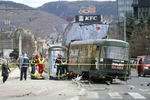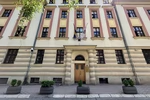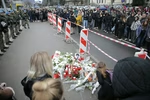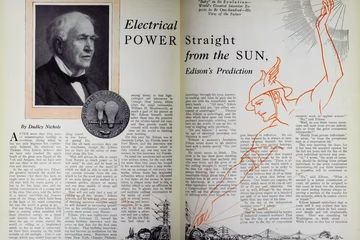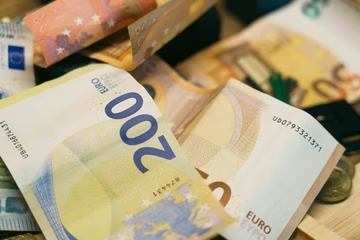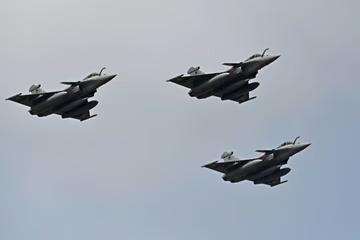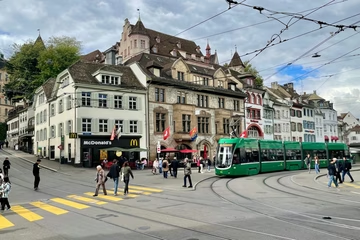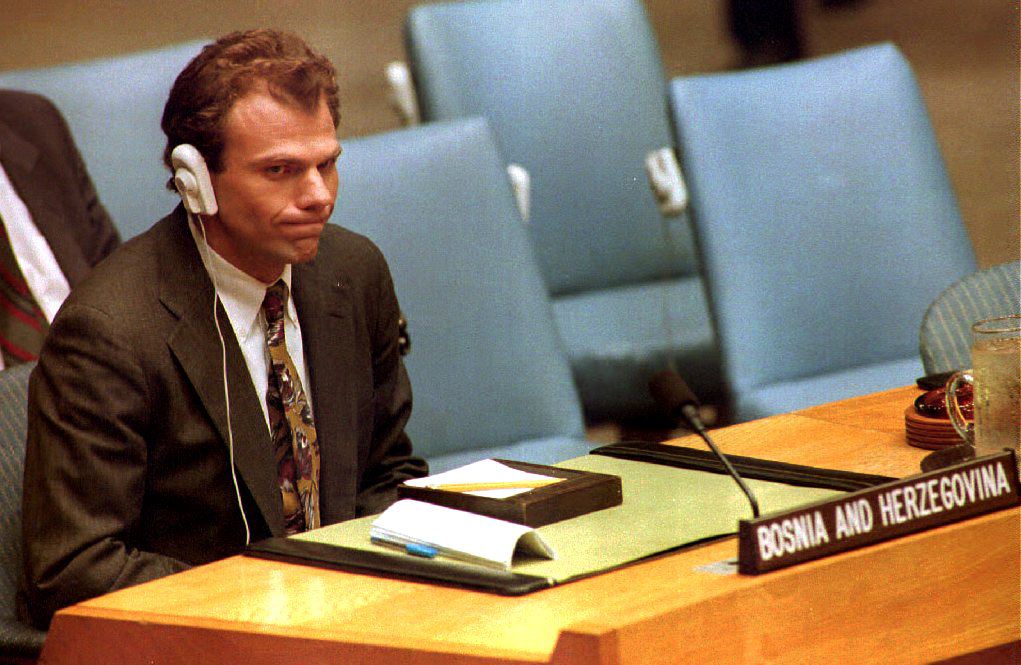
Exactly 27 years ago on Wednesday, Bosnia’s flag was raised in front of the United Nations building in East River, New York, after the country became a full member on May 22, 1992, per a resolution adopted two days prior.
Bosnia’s former Minister of Foreign Affairs and UN Ambassador, Muhamed Sacirbey, told N1 that it represents one of the most important days in Bosnia's modern history.
“If we would not have been accepted at that time, and many tried to prevent us from it, it is unclear where Bosnia and Herzegovina would have been in the sense of its status as a state,” Sacirbey said, explaining that parties in the negotiations already started using it as a bargaining chip at the time.
“There were many hopes and worries. The job for Bosnia to be accepted into the United Nations lasted a couple of months, and at the time it was a huge job to do,” he explained.
He said that when Bosnia was accepted in the UN and right after the war, it was “a small diplomatic power.”
“I don’t know if we can say that (about Bosnia) today;” he said. He compared the country to Ruanda, which experienced genocide at the time but is now “respected in the context of being a country which has unified and which knows its history well.”
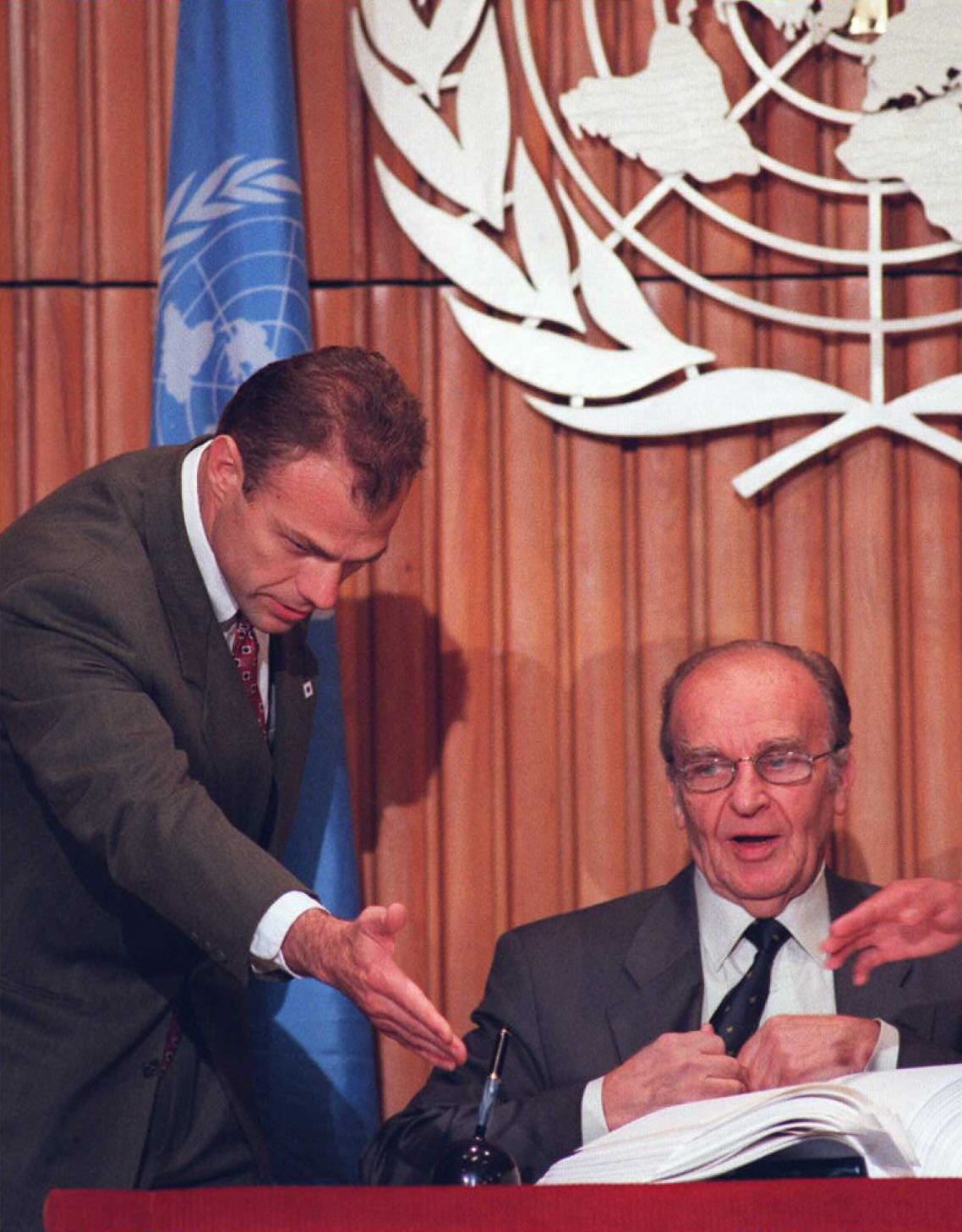
Sacirbey said that during the process at the UN, Bosnia’s representatives had enough moral prestige that they could discuss a lot of things from a high level.
People do not seem to know that “we influenced the solution of the problem between Israel and Palestine, Iran and America” and the issue of Northern Ireland at the time, as Bosnia participated in a meeting where the Good Sunday Agreement was discussed.
“We had that influence that we could use our experience in a positive context. I am proud that many Bosnians are still participating in the UN programme, not only through diplomacy but also through some peace missions," Sacirbey said, adding that he considered EU and NATO integration as key goals.
"The responsibility is often put on Bosnian politics, but responsibility should also be put on the European and NATO politics,” he added.
He explained that many at the time would discuss Bosnia and Herzegovina as a divided state which was part of a religious or ethnic war and not as a victim of extremism and fascism.
“What we thought we overcame in WWII repeated 40 years later. Bosnia and Herzegovina was a victim of it,” he said.
But is Bosnia and Herzegovina the independent and sovereign state its representatives wished for?
“I will not say no, I can only say not yet,” Sacirbey said.
“Now Bosnia is falling under another influence, something that developed after 1995, and that is the influence of the new nationalist Kremlin. We can also say that the new Trump administration is the same thing, they allowed for Europe to go backwards, towards what brought on WWII,” he explained.
Many politicians in and outside Bosnia do not want the country to become the country its representative hoped for, Sacirbey said, adding that he never thought that the job would end with him, but that he is glad that he “left the door open for others” to realise the country as they want to see it."
“I understand that the door if fully open now for Bosnia and Herzegovina to be as its citizens want to see it. Bosnia needs to be very proud of its history, not in the sense of how the war passed, but that we maintained this country, mostly because of its citizens and those who defended it at that time,” he said.
He concluded that, while diplomacy played its role in the process, it could not have succeeded if it was not for the citizens who defended Bosnia and Herzegovina.
Kakvo je tvoje mišljenje o ovome?
Učestvuj u diskusiji ili pročitaj komentare





 Srbija
Srbija
 Hrvatska
Hrvatska
 Slovenija
Slovenija















